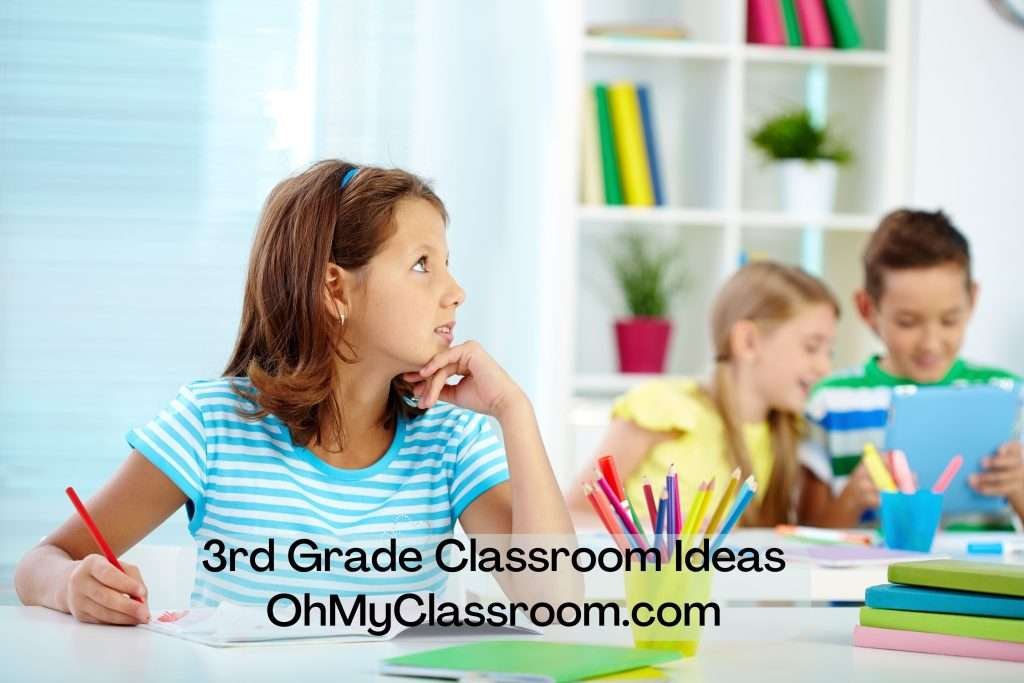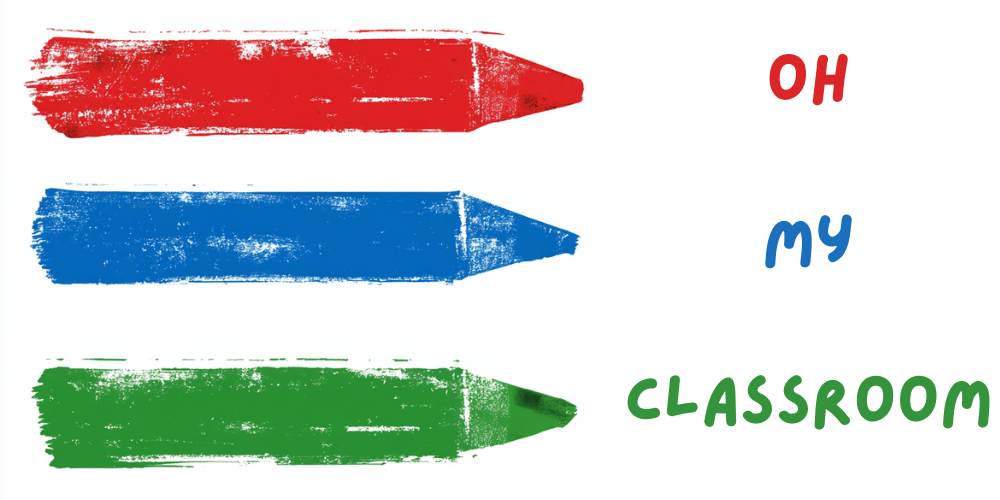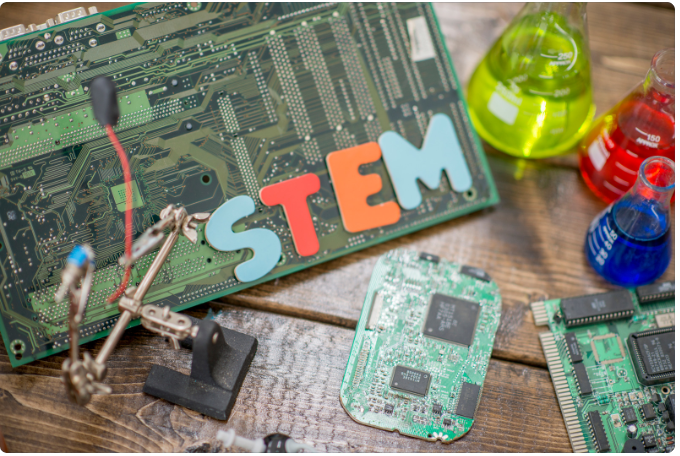Welcome to a realm of boundless imagination and endless possibilities – the world of 3rd-grade innovation!
As educators, we recognize the importance of cultivating a learning environment that embraces creativity, curiosity, and critical thinking.
In this compilation of innovative 3rd grade classroom ideas, we aim to inspire teachers to unleash their ingenuity and create unforgettable learning experiences for their young students.
From cutting-edge technology that enhances learning to hands-on activities that ignite a passion for exploration, and from cross-curricular projects that foster holistic growth to interactive games that make learning a joyous adventure, these ideas will undoubtedly revolutionize the way we approach education in the 3rd grade.
So, let’s embark on this exciting journey of discovery and transformation, where both educators and students can thrive and flourish together!

Language Immersion Day:

Immerse your 3rd-grade students in a language-learning adventure with a Language Immersion Day. Choose a foreign language, such as Spanish, French, or Mandarin, and plan a day filled with language-based activities. Label classroom objects with their foreign language names, teach basic phrases, play language-learning games, and even engage in simple conversations. Encourage students to use the language throughout the day, making it a fun and interactive experience. Language Immersion Day not only introduces students to new cultures and languages but also sparks an interest in language learning and global communication.
Science Exploratorium:

Fuel the scientific curiosity of your 3rd graders by organizing a Science Exploratorium in the classroom. Set up stations with different hands-on experiments and activities covering various science topics, such as magnetism, light refraction, plant growth, and simple machines. Divide the class into small groups and let them rotate through the stations, engaging in exciting experiments and discoveries. Incorporate worksheets or journals for students to record their observations and reflections. This activity not only promotes scientific thinking but also encourages teamwork and critical analysis. The Science Exploratorium is sure to leave a lasting impression, fostering a passion for science in your young learners.
Literature Circles Book Club:

Nurture a love for reading and foster thoughtful discussions with a Literature Circles Book Club. Divide the class into smaller groups and assign each group a captivating age-appropriate book to read. Encourage them to read the book together and hold regular book club meetings where they can discuss the plot, characters, and themes. Provide guiding questions to stimulate deeper analysis and encourage them to express their opinions. This activity not only improves reading comprehension but also enhances communication skills and empathy as students explore different perspectives. The Literature Circles Book Club creates a supportive and inclusive atmosphere, where students can share their excitement for books and engage in meaningful conversations.
Related: 23 Life Skill Activities for Kids
Math Olympics:

Make math enjoyable and competitive with a Math Olympics event. Organize various math-based games and activities that cover concepts like addition, subtraction, multiplication, and geometry. Divide the class into teams and have them compete in a friendly yet spirited environment. Incorporate challenges that require problem-solving and critical thinking to keep students engaged and motivated. Offer prizes or certificates to celebrate their participation and accomplishments. This activity not only strengthens math skills but also instills a positive attitude towards the subject, turning math from a daunting challenge into an exciting challenge.
Community Service Project:

Instill a sense of empathy and social responsibility in your 3rd graders through a community service project. Discuss different local causes or issues and let the class vote on one they want to support. It could be a food drive, a letter-writing campaign to soldiers or nursing home residents, or a clean-up project in a local park. Plan and execute the project as a class, involving students in every step, from planning to implementation. This activity not only cultivates a sense of citizenship but also teaches valuable life skills, such as teamwork, organization, and leadership. Witnessing the impact of their efforts will leave a lasting impression on students, fostering a sense of pride and accomplishment for contributing positively to their community.
Artistic Expression Gallery:

Encourage creativity and self-expression in your 3rd-grade classroom by hosting an Artistic Expression Gallery. Provide a variety of art supplies, such as colored pencils, watercolors, clay, and craft materials. Let students create their masterpieces based on a chosen theme or let their imagination run wild with open-ended projects. Once the artworks are completed, organize a gallery exhibition where students can proudly display their creations. Invite parents and other classes to attend the gallery, fostering a sense of pride and recognition for the young artists. This activity not only nurtures artistic skills but also boosts confidence and self-esteem, as students showcase their unique talents.
Music Composition Project:

Unleash the musical talents of your 3rd graders with a Music Composition Project. Introduce them to the basics of music notation and theory, and let them experiment with creating their own compositions. Provide musical instruments, music software, or even simple online tools for music composition. Students can work individually or in small groups to compose their pieces, which can be based on themes, emotions, or stories. Have a “composer’s showcase” where students can perform or present their compositions to the class. This activity not only enhances musical skills but also nurtures creativity and self-expression through the language of music.
Related: 22 Fun and Refreshing Swimming Pool Games for Kids
Diversity and Inclusion Fair:

Celebrate diversity and promote inclusion with a Diversity and Inclusion Fair in your 3rd-grade classroom. Encourage students to explore and research different cultures, traditions, and celebrations from around the world. Each student or group can represent a specific country or culture and create displays, artifacts, or presentations to showcase their findings. Host the fair, inviting other classes, parents, and school staff to participate. This activity not only promotes cultural awareness but also nurtures empathy and respect for different backgrounds and perspectives. The Diversity and Inclusion Fair creates a welcoming and inclusive environment where students can learn from one another’s rich cultural heritage.
Math Detective Challenge:

Transform math into an exciting detective challenge that engages your 3rd-grade students’ problem-solving skills. Create a series of math puzzles and riddles, each leading to the next clue, and design a mystery storyline around them. Divide the class into teams, and as they solve the math puzzles, they unravel the mystery step by step. The final solution reveals the “culprit” or the “hidden treasure.” This activity not only reinforces math concepts but also sharpens critical thinking and logical reasoning abilities. The Math Detective Challenge will make math an enjoyable adventure full of intrigue and suspense.
Virtual Field Trips:

Expand the horizons of your 3rd-grade classroom by taking students on virtual field trips to distant lands and historical periods. Utilize technology to virtually explore ancient civilizations, natural wonders, famous landmarks, museums, and more. Discuss and reflect on the experiences afterward, encouraging students to share their insights and what they’ve learned. This activity not only broadens their knowledge but also nurtures their curiosity and digital literacy. Virtual field trips offer a world of possibilities beyond the confines of the classroom, making learning an exciting and eye-opening journey.
Storytelling Extravaganza:

Unleash the power of storytelling in your 3rd-grade classroom with a Storytelling Extravaganza. Invite guest storytellers, such as parents, community members, or older students, to share their favorite tales from different cultures and traditions. Encourage students to prepare and share their own stories as well, whether they be fictional adventures or personal anecdotes. Create a cozy and imaginative atmosphere with dimmed lights, storytelling props, and themed decorations. This activity not only enhances language skills but also fosters creativity and cultural appreciation. The Storytelling Extravaganza will transport students to magical worlds and inspire them to become confident storytellers themselves.
STEM Design Challenges:

Ignite your 3rd graders’ passion for science, technology, engineering, and math (STEM) with exciting design challenges. Introduce real-world problems or scenarios that require creative solutions and teamwork. For instance, task students with building a sturdy bridge using limited materials or designing a water filtration system. Encourage them to brainstorm, test, and iterate their designs until they achieve the best results. This activity not only reinforces STEM concepts but also nurtures critical thinking, problem-solving, and resilience. The STEM Design Challenges empower students to think like engineers and innovators, preparing them for future technological advancements.
Culinary Science Lab:

Combine the joy of cooking with the wonders of science by hosting a Culinary Science Lab in your 3rd-grade classroom. Introduce age-appropriate recipes that involve chemical reactions, changes of state, or measurements. Let students engage in hands-on cooking and baking experiments while understanding the scientific principles behind each step. For example, they can observe how baking soda causes the dough to rise or how water turns to ice in the freezer. This activity not only makes learning fun but also enhances students’ understanding of scientific concepts in everyday life. The Culinary Science Lab will satisfy their curiosity and appetite for knowledge simultaneously.
Math Art Integration:

Infuse art into your 3rd-grade math lessons with a Math Art Integration project. Assign each student a mathematical concept, such as symmetry, patterns, or geometry. Have them create art pieces that incorporate the assigned concept. For instance, they could design symmetrical paintings or use geometric shapes to create mosaic art. Encourage them to explain the mathematical principles behind their artwork, linking creativity with mathematical thinking. This activity not only strengthens math skills but also promotes visual and spatial intelligence. The Math Art Integration project celebrates the beauty of math and art coming together harmoniously.
Character Carnival Parade:

Bring literature to life with a Character Carnival Parade, where the beloved characters from books come alive in your 3rd-grade classroom. Assign each student a character from a book they’ve read or a famous literary figure. Provide time for them to create costumes and props that represent their characters. Organize a lively carnival parade where each student marches as their character, giving a short speech about their role. This activity not only fosters a deeper connection with literature but also boosts public speaking and presentation skills. The Character Carnival Parade celebrates the joy of reading and imagination, turning the classroom into a literary wonderland.
Exploring Ancient Civilizations Fair:

Take your 3rd-grade students on a captivating journey through time with an Exploring Ancient Civilizations Fair. Divide the class into groups and assign each group a different ancient civilization, such as Egypt, Greece, or Rome. Have them research and create displays showcasing the culture, architecture, inventions, and achievements of their assigned civilization. Encourage creativity by incorporating models, artifacts, and even traditional food samples. Invite other classes or parents to visit the fair, allowing students to share their newfound knowledge in an engaging and interactive manner. This activity not only deepens their understanding of history but also promotes teamwork and presentation skills, making learning about ancient civilizations an unforgettable experience.
Environmental Documentary Project:

Empower your 3rd graders to become environmental activists through an Environmental Documentary Project. As a class, choose an environmental issue that concerns the students, such as pollution, deforestation, or climate change. Divide them into small groups, and assign each group a specific aspect of the issue to research. Instruct them to create short documentaries or video presentations that highlight the problem, its impact, and potential solutions. This activity not only enhances research and communication skills but also instills a sense of responsibility towards the environment. The Environmental Documentary Project empowers students to become advocates for a sustainable future and inspires positive change within their community.
Creative Writing Publishing House:

Fuel your 3rd graders’ passion for writing by establishing a Creative Writing Publishing House in the classroom. Encourage students to write original stories, poems, or essays and assist them in editing and revising their work. Once the pieces are polished, compile them into a class anthology or magazine. Design cover artwork and layout together as a class, creating a professional-looking publication. Host a book launch event where students can read excerpts from their work to an audience of parents and peers. This activity not only enhances writing and editing skills but also fosters confidence and a sense of accomplishment as young authors see their work in print.
Math Around the World Fair:

Embark on a global mathematical journey with a Math Around the World Fair. Assign each student or group to a different country to research, and have them explore the unique mathematical contributions and achievements of that culture. From ancient numerical systems and geometric designs to modern-day innovations, students will discover the fascinating world of math beyond borders. Create interactive displays, posters, and presentations showcasing the mathematical wonders of each country. The fair can also include math-based games and activities from around the world. This activity not only deepens their appreciation for mathematics but also fosters cultural awareness and global connections.
STEAM Boat Challenge:

Combine science, technology, engineering, art, and math in a STEAM Boat Challenge. Task your 3rd-grade students with designing and building boats that can float and move across the water. Provide materials such as cardboard, tape, straws, and plastic bottles. Students can experiment with different designs, learning about buoyancy, balance, and propulsion. After testing their boats, have a boat race or a boat performance competition. This activity not only reinforces STEAM principles but also promotes hands-on problem-solving and teamwork. The STEAM Boat Challenge sets sail on a journey of exploration and discovery.

